Fleurs du Mal Magazine



On a Political Prisoner
She that but little patience knew,
From childhood on, had now so much
A grey gull lost its fear and flew
Down to her cell and there alit,
And there endured her fingers’ touch
And from her fingers ate its bit.
Did she in touching that lone wing
Recall the years before her mind
Became a bitter, an abstract thing,
Her thought some popular enmity:
Blind and leader of the blind
Drinking the foul ditch where they lie?
When long ago I saw her ride
Under Ben Bulben to the meet,
The beauty of her country-side
With all youth’s lonely wildness stirred,
She seemed to have grown clean and sweet
Like any rock-bred, sea-borne bird:
Sea-borne, or balanced in the air
When first it sprang out of the nest
Upon some lofty rock to stare
Upon the cloudy canopy,
While under its storm-beaten breast
Cried out the hollows of the sea.
William Butler Yeats
(1865-1939)
On a Political Prisoner
Photo: Alice Boughton, 1903
•fleursdumal.nl magazine
More in: Archive Y-Z, Archive Y-Z, Yeats, William Butler
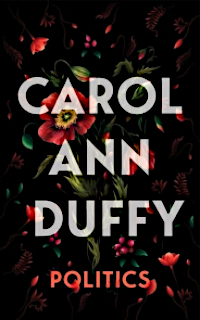 One of the English language’s best-loved living poets, in Red: Politics – one of four themed collections – Carol Ann Duffy presents us with her favourites among her political poetry.
One of the English language’s best-loved living poets, in Red: Politics – one of four themed collections – Carol Ann Duffy presents us with her favourites among her political poetry.
Drawing on work written over four decades and arranged chronologically, Duffy also adds to the selection her poem written for Danny Boyle’s Pages of the Sea memorial for The Great War.
It makes for a sequence that is searching, memorializing, healing.
Carol Ann Duffy:
Politics (Poetry)
Picador Publisher
02 March 2023
ISBN: 9781529096910
64 pages
Hardcover
£9.55
• fleursdumal.nl magazine
More in: #Editors Choice Archiv, - Book News, - Bookstores, Archive C-D, Archive C-D
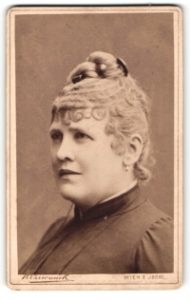
Herzblut
1.
O könnt’ ich Alles geben,
Was dieses Herz bewegt,
Und all die tausend Gedanken,
Die wüst mein Schädel hegt! –
Es dränget heiß zur Lippe,
Was mir das Herz zerbricht;
Ich kenn’ es, ach, ich fühl’ es –
Doch sagen kann ich’s nicht!
2.
Es fragen mich die Menschen,
Was mich so elend gemacht;
Ich sag’ euch, ich habe mein Elend
Mit auf die Welt gebracht.
Es liegt in meinem Fühlen
In dem halbentfesselten Geist,
Der aufwärts will und der Alles
Zur Erde doch wieder reißt.
3.
Ich blickte jüngst in mich –
So recht in’s Herz hinein
Und glaubte noch etwas zu finden
Von dem, was einstens mein.
Ich sah mein verlornes Eden,
Mein versunkenes Paradies,
Mich selbst den gefallenen Engel,
Den Himmel und Erde verstieß.
4.
Ach nur einmal möcht’ ich sinken
Noch in deine Arme hin,
Und nur einmal noch vergessen,
Was ich war und was ich bin!
Ach nur einmal so dich sehen
Wie du einst gewesen bist;
Und dann Alles wieder leiden,
Was schon war und was noch ist.
5.
Nur eine Thräne gebt mir wieder,
Nur eine einz’ge will ich haben!
Mit dieser Thräne aber will ich
Das todeskranke Herze laben.
In diese Thräne will ich senken
Mein ganzes namenloses Weh,
Mit dieser Thräne will ich sagen,
Was ich stets fühl’ und kaum versteh’!
6.
Ach, ihr wißt nicht, wie sich’s lebt,
Athmet in der Trunkenheit
Einer Liebe, die befreit,
Die begeistert, die erhebt!
Ach, ihr wißt nicht, wie sich’s lebt,
Athmet in Versunkenheit
Einer Liebe, die entweiht,
An der Schmach und Elend klebt!
7.
Von dem, was ich besessen,
Ist wenig mir geblieben,
Von meinen süßen Träumen,
Von Glauben, Hoffen, Lieben!
Nur schmerzliches Erinnern
Ist’s, was das Herz behielt,
Verachtung, Haß und Flüche –
Und eines Mannes Bild.
8.
»Heut haben wir schönes Wetter.«
»»O ja, recht schönes, mein Herr!««
Das sind so unsre Gespräche,
So kalt, so dumm, so leer.
Du streichelst mir fragend die Wange,
Du kennst das gewisse Roth;
Für dich ist’s nichts als Schminke –
Für mich: in der Brust der Tod.
9.
Ich hab’ in langen Tagen
Gar oft an dich gedacht,
Ich hab’ in langen Nächten
Gehofft, geweint, gewacht.
Wie einstmals sitz’ ich wieder
Beim abgebrannten Licht;
Ich wache – aber hoffen
Und weinen kann ich nicht.
10.
Ich weinte um den Frühling –
Ich Thörin!
Ich weinte um die Blumen,
Die alle verblüht und verwelkt –
Ich Thörin!
Wer weint um meine Jugend?
Wer weint um meine Träume?! – –
11.
Sieh’, in dies dein theures Bildniß
Möcht’ ich mich so ganz versenken;
Könnt’ ich, ach! dem Bilde doch
Athem, Leben, Sprache schenken!
Könnt’ ich in die kalten Formen
Gluth und Blut und Liebe gießen,
Könnt’ ich diese lieben Hände
Heiß zu heißem Drucke küssen! –
Ach, ich kann es nicht. Es bleibet
Kalt und stumm in stolzer Ruh’;
Aber du bist gut getroffen:
Denn es ist so ganz wie du!
12.
Wenn ich ihn manchmal sah,
Hab’ ich gezittert, gebangt;
Und dennoch wieder hab’ ich
Nur ihn zu sehen verlangt.
Und wenn er im Vorbeigehen
Nur leicht mein Kleid berührt,
Hab’ ich noch lang darüber
Mit den Blumen diskurirt.
13.
Da sprach er so lieb und so freundlich,
So zärtlich, gütig und mild;
Man konnte beinahe glauben,
Er hab’ auch Alles gefühlt.
Doch plötzlich dieser Blick,
Dies Lächeln – o mein Gott!
Dies höhnische Compliment –
Ich wollt’, ich wäre todt!
14.
Ach ja, es ist nur allzu wahr,
Was nützt dir mein Lieben und Leben,
Und würd’ ich aus den Adern
Mein rothes Blut dir geben.
Blut ist Blut und bleibt es,
Und wird ja nie zu Geld,
Und Geld gehört zum Leben:
Das ist der Lauf der Welt.
Mein Leben nützt dir nichts;
Bezahlte man mich für’s Sterben,
Ich stürbe ja gerne morgen
Um Alles dir zu vererben.
15.
Ich sehne mich nach wilden Küssen,
Nach wollustheißen Fieberschauern;
Ich will die Nacht am hellen Tag
Nicht schon in banger Qual durchtrauern.
Noch schlägt mein Herz mit raschem Drang,
Noch brennt die Wang’ in Jugendgluthen –
Steh’ still, lösch’ aus mit einem Mal!
Nur nicht so tropfenweis verbluten!
16.
Du hast mich unsäglich elend gemacht,
Und doch, ich kann dich nicht lassen;
Ich liebe dich stets mehr und mehr –
Und sollte dich endlos hassen.
Mein letzter Stern ging unter,
Als du dich von mir gewandt:
Da bin ich mit vollem Herzen
In’s leere Leben gerannt.
17.
»Dein Vers hat nicht das rechte Maaß,«
So will man mich verweisen,
»An Fluß und Glätte fehlt es ihm« –
Und wie sie’s sonst noch heißen.
Sie zählen an den Fingern ab,
Verbessern wohl zehnmal wieder;
Ich leg’ die Hand auf mein blutendes Herz:
Was das sagt, schreib’ ich nieder.
Ada Christen
(1839 – 1901)
Herzblut
1869
• fleursdumal.nl magazine
More in: Archive C-D, Archive C-D, Christen, Ada

Roep uit dan!
Verticale streepjes met een puntje eronder noemt
men uitroeptekens. Roep uit, roep uit, roep uit dan
vriendjes! Tuimel over geestdrift, en liefde voor
boeken vol vogels. Het mag allemaal. Geen sprake
van versagen. Accentueer de koenheid van de x
in een woord als larynx! Richt heel je lengte
op het slot van zinnen met voldongen feiten: !!!!
Bert Bevers
Roep uit dan!
Uit: Eigen terrein, Uitgeverij WEL, Bergen op Zoom, 2013
•fleursdumal.nl magazine
More in: Archive A-B, Archive A-B, Bevers, Bert
The hidden history of a vulnerable gay man whose life and death were turned into tabloid fodder.
In the early 1990s, eight people living in a small conservative Florida town alleged that Dr. David Acer, their dentist, infected them with HIV. David’s gayness, along with his sickly appearance from his own AIDS-related illness, made him the perfect scapegoat and victim of mob mentality.
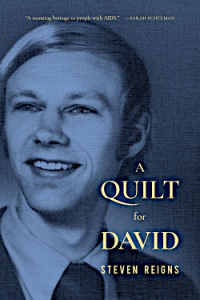 In these early years of the AIDS epidemic, when transmission was little understood, and homophobia rampant, people like David were villainized. Accuser Kimberly Bergalis landed a People magazine cover story, while others went on talk shows and made front page news.
In these early years of the AIDS epidemic, when transmission was little understood, and homophobia rampant, people like David were villainized. Accuser Kimberly Bergalis landed a People magazine cover story, while others went on talk shows and made front page news.
With a poet’s eulogistic and psychological intensity, Steven Reigns recovers the life and death of this man who also stands in for so many lives destroyed not only by HIV, but a diseased society that used stigma against the most vulnerable.
It’s impossible not to make connections between this story and how the twenty-first century pandemic has also been defined by medical misinformation and cultural bias.
Inspired by years of investigative research into the lives of David and those who denounced him, Reigns has stitched together a hauntingly poetic narrative that retraces an American history, questioning the fervor of his accusers, and recuperating a gay life previously shrouded in secrecy and shame.
Steven Reigns is a Los Angeles-based poet and educator and was appointed the first Poet Laureate of West Hollywood. Alongside over a dozen chapbooks, he has published the collections Inheritance and Your Dead Body is My Welcome Mat. Reigns holds a BA in Creative Writing from the University of South Florida, a Master of Clinical Psychology from Antioch University, and is a fourteen-time recipient of The Los Angeles County’s Department of Cultural Affairs’ Artist in Residency Grant. He edited My Life is Poetry, showcasing his students’ work from the first-ever autobiographical poetry workshop for LGBT seniors. Reigns has lectured and taught writing workshops around the country to LGBT youth and people living with HIV. Currently he is touring The Gay Rub, an exhibition of rubbings from LGBT landmarks, facilitates the monthly Lambda Lit Book Club, and is at work on a new collection of poetry.
A Quilt for David Paperback
by Steven Reigns (Author)
2021
Language: English
Publisher: City Lights Publishers
Paperback
128 pages
ISBN-10: 0872868818
ISBN-13: 978-0872868816
$11.12
• fleursdumal.nl magazine
More in: #Editors Choice Archiv, - Book News, - Bookstores, AIDS, Archive Q-R, Archive Q-R, LGBT+ (lhbt+)
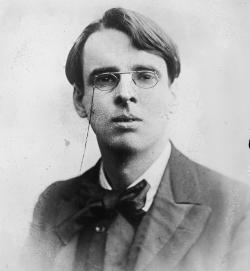
A Memory of Youth
The moments passed as at a play;
I had the wisdom love brings forth;
I had my share of mother-wit,
And yet for all that I could say,
And though I had her praise for it,
A cloud blown from the cut-throat north
Suddenly hid Love’s moon away.
Believing every word I said,
I praised her body and her mind
Till pride had made her eyes grow bright,
And pleasure made her cheeks grow red,
And vanity her footfall light,
Yet we, for all that praise, could find
Nothing but darkness overhead.
We sat as silent as a stone,
We knew, though she’d not said a word,
That even the best of love must die,
And had been savagely undone
Were it not that Love upon the cry
Of a most ridiculous little bird
Tore from the clouds his marvellous moon.
William Butler Yeats
(1865-1939)
A Memory of Youth
• fleursdumal.nl magazine
More in: Archive Y-Z, Archive Y-Z, Yeats, William Butler
De kloosters van de Heilige Driehoek in het Noord-Brabantse Oosterhout vormen voor de derde keer het bijzondere toneel voor een hedendaagse kunst biënnale van internationale allure.
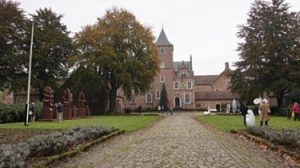 De h3h biënnale voert door de kloosters en langs parkachtige tuinen, weidse landerijen en oude dreven waar je werken tegenkomt van 27 kunstenaars.
De h3h biënnale voert door de kloosters en langs parkachtige tuinen, weidse landerijen en oude dreven waar je werken tegenkomt van 27 kunstenaars.
De meeste daarvan zijn speciaal voor de biënnale gemaakt. De manifestatie is nog te bezoeken tot en met 16 juli.
De curatoren zijn Hendrik Driessen en Rebecca Nelemans. Zij tonen kunstenaars uit binnen- en buitenland met nieuwe en bestaande werken, geïnspireerd door de unieke locatie en de rijke historische en spirituele tradities.
Het zijn Ghada Amer, Maarten Baas, David Bade, Marwan Bassiouni, David Claerbout, Delphine Courtillot, Anne Geene, Lisette de Greeuw, Loek Grootjans, Elise ’t Hart, Frank Havermans, Laura Henno, Ann Veronica Janssens, Folkert de Jong, Alicja Kwade, Rudy Luijters, Rick van Meel, Romee van Oers, Paulien Oltheten, Kathrin Schlegel, Fiona Tan, Fran Van Coppenolle, Ine Vermee, Wessel Verrijt en Dré Wapenaar. Daarnaast is er ook werk geselecteerd van de overleden kunstenaars Piet den Blanken en JCJ Vanderheyden.
 Deze editie van de h3h biënnale draagt het thema Geloof. De curatoren hechten veel waarde aan de verbinding die een kunstenaar met zijn of haar werk weet aan te gaan met een specifieke locatie binnen het kloostergebied en het thema.
Deze editie van de h3h biënnale draagt het thema Geloof. De curatoren hechten veel waarde aan de verbinding die een kunstenaar met zijn of haar werk weet aan te gaan met een specifieke locatie binnen het kloostergebied en het thema.
De symbiose die ontstaat tussen het werk en de plek was leidend bij de keuze voor de kunstenaars.
De kunstwerken die getoond zullen worden variëren van schilderijen, sculpturen, (geluids)installaties, fotografie en video, tot monumentale ingrepen in het landschap.
De vorige biënnale met het thema Hoop was te bezoeken van 10 juli t/m 15 augustus 2021. De komende editie (in 2023) heeft Geloof als thema, terwijl dat voor de eerste kunstmanifestatie in 2017 Liefde was.
Entree en parking h3h biënnale 2023, Monnikendreef, Oosterhout.
Dagelijks open, behalve op dinsdag, van 10.00 tot 17.00 uur.
Nog te zien t/m 16 juli 2023
Meer informatie op website: https://www.h3hbiennale.nl/biennale/
• fleursdumal.nl magazine
More in: Art & Literature News, AUDIO, CINEMA, RADIO & TV, CATHEDRALS, Dutch Landscapes, Exhibition Archive, Land Art, Performing arts, Photography, Sculpture
Genesis P-Orridge, the mind and voice behind Psychic TV, Throbbing Gristle and COUM Transmissions, began their artistic journey in the 1960’s writing poetry.
Heartworm Press is proud to present hundreds of never before seen or published poems by this legendary, influential original.
Genesis P-Orridge, the mind and voice behind Psychic TV, Throbbing Gristle and COUM Transmissions, began their artistic journey in the 1960’s writing poetry.
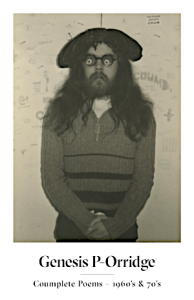 This collection introduces Genesis as a thoughtful innovator and irreverent provocateur with over two decades of poetry, from beat to concrete, and shows the progression of the self, beginning the book under the given name of Neil Megson and eventually growing into the enigmatic Genesis P-Orridge.
This collection introduces Genesis as a thoughtful innovator and irreverent provocateur with over two decades of poetry, from beat to concrete, and shows the progression of the self, beginning the book under the given name of Neil Megson and eventually growing into the enigmatic Genesis P-Orridge.
Heartworm Press is proud to present hundreds of never before seen or published poems including 50 images with an intro by friend and collaborator Wesley Eisold.
Genesis P-Orridge (1950 – 2020) was a singer-songwriter, musician, poet, performance artist, and occultist who rose to notability as the founder of the COUM Transmissions artistic collective and lead vocalist of seminal industrial band Throbbing Gristle. P-Orridge was also a founding member of Thee Temple ov Psychick Youth occult group, and fronted the experimental band Psychic TV.
Coumplete Poems – 1960’s & 70’s
by Genesis P-Orridge
Pub Date: 05/01/2023
Publisher: Heartworm Press
ISBN 979-8-9859385-2-4
SKU#: D19A
Binding: Paperback
Pages:212
Price: $ 28.00
• fleursdumal.nl magazine
More in: #Editors Choice Archiv, - Book News, - Bookstores, Archive O-P, Archive O-P, AUDIO, CINEMA, RADIO & TV, Performing arts
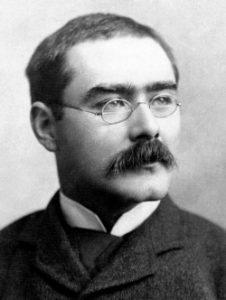
The City of Sleep
Over the edge of the purple down,
Where the single lamplight gleams,
Know ye the road to the Merciful Town
That is hard by the Sea of Dreams –
Where the poor may lay their wrongs away,
And the sick may forget to weep?
But we – pity us! Oh, pity us!
We wakeful; ah, pity us! –
We must go back with Policeman Day –
Back from the City of Sleep!
Weary they turn from the scroll and crown,
Fetter and prayer and plough –
They that go up to the Merciful Town,
For her gates are closing now.
It is their right in the Baths of Night
Body and soul to steep,
But we – pity us! ah, pity us!
We wakeful; oh, pity us! –
We must go back with Policeman Day –
Back from the City of Sleep!
Over the edge of the purple down,
Ere the tender dreams begin,
Look – we may look – at the Merciful Town,
But we may not enter in!
Outcasts all, from her guarded wall
Back to our watch we creep:
We – pity us! ah, pity us!
We wakeful; ah, pity us! –
We that go back with Policeman Day –
Back from the City of Sleep!
Rudyard Kipling
(1865 – 1936)
The City of Sleep
• fleursdumal.nl magazine
More in: Archive K-L, Archive K-L, Kipling, Rudyard
A thrillingly provocative investigation into the Shakespeare authorship question, exploring how doubting that William Shakespeare wrote his plays became an act of blasphemy…and who the Bard might really be.
 The theory that Shakespeare may not have written the works that bear his name is the most horrible, vexed, unspeakable subject in the history of English literature.
The theory that Shakespeare may not have written the works that bear his name is the most horrible, vexed, unspeakable subject in the history of English literature.
Scholars admit that the Bard’s biography is a “black hole,” yet to publicly question the identity of the god of English literature is unacceptable, even (some say) “immoral.”
In Shakespeare Was a Woman and Other Heresies, journalist and literary critic Elizabeth Winkler sets out to probe the origins of this literary taboo.
Whisking readers from London to Stratford-upon-Avon to Washington, DC, she pulls back the curtain to show how the forces of nationalism and empire, religion and mythmaking, gender and class have shaped our admiration for Shakespeare across the centuries.
As she considers the writers and thinkers—from Walt Whitman to Sigmund Freud to Supreme Court justices—who have grappled with the riddle of the plays’ origins, she explores who may perhaps have been hiding behind his name.
A forgotten woman? A disgraced aristocrat? A government spy? Hovering over the mystery are Shakespeare’s plays themselves, with their love for mistaken identities, disguises, and things never quite being what they seem.
As she interviews scholars and skeptics, Winkler’s interest turns to the larger problem of historical truth—and of how human imperfections (bias, blindness, subjectivity) shape our construction of the past. History is a story, and the story we find may depend on the story we’re looking for.
An irresistible work of literary detection, Shakespeare Was a Woman and Other Heresies will forever change how you think of Shakespeare… and of how we as a society decide what’s up for debate and what’s just nonsense, just heresy.
Elizabeth Winkler is a journalist and book critic whose work has appeared in The Wall Street Journal, The New Yorker, The New Republic, The Times Literary Supplement, and The Economist, among other publications. She received her undergraduate degree from Princeton University and her master’s in English literature from Stanford University. Her essay “Was Shakespeare a Woman?”, first published in The Atlantic, was selected for The Best American Essays 2020. She lives in Washington, DC.
Shakespeare Was a Woman and Other Heresies
By Elizabeth Winkler (Author)
Language: English
Publisher: Simon & Schuster
June 8, 2023
Length: 416 pages
Hardcover
ISBN-10:198217126X
ISBN-13:978-1982171261
£15.00
• fleursdumal.nl magazine
More in: Archive S-T, Archive S-T, Archive W-X, Shakespeare, William

Welgemutst
De lessen zijn gedaan. De tram stroomt vol uniform.
Vol bewegingsdrang, zoals een vis is, kleine jeugd
alom plotsklaps. Jongens willen wijsjes en meisjes
schoentjes. Daar horen zoentjes bij. Al is het maar
in gedachten. Zie ze eens naar de toekomst groeien.
Ze snuiven fris. En lachen elkaar zacht toe, broos
als het marsepeinen gezicht van de mutslangoer.
Bert Bevers
Welgemutst
Gedicht
Uit: Eigen terrein, Uitgeverij WEL, Bergen op Zoom, 2013
•fleursdumal.nl magazine
More in: Archive A-B, Archive A-B, Bevers, Bert
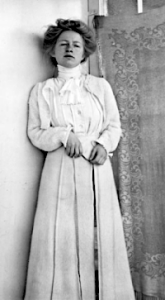
Ord
Varma ord, vackra ord, djupa ord…
De äro som doften av en blomma i natten
den man icke ser.
Bakom dem lurar den tomma rymden…
Kanske de äro den ringlande röken
från kärlekens varma härd?
Edith Södergran
(1892-1923)
Ord
• fleursdumal.nl magazine
More in: Archive S-T, Archive S-T, Södergran, Edith
Thank you for reading Fleurs du Mal - magazine for art & literature